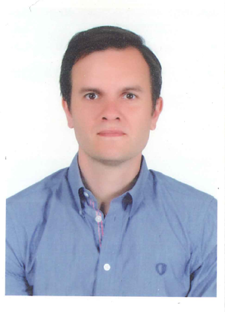Educational policy development for environment and sustainability
The following two symposia are complementary and build off one another
Part 1: Theoretical and Methodological Approaches to Policy Research
Part 2: Case Examples of Policy Contexts
This two part symposium focuses on the topic of environment and sustainability in relation to educational policy development, enactment, and analysis.
The first part of the symposium will focus on theoretical and methodological approaches to policy and policy research. Some key questions to be addressed include: i) What kinds of understandings of policy and policy research are informing work in environmental and sustainability education? ii) Are there interdisiplinary approaches to policy research that can be useful for furthering critical education policy analysis? iii) What are the relationships between policy development and its enactment or implementation? iv) To what extent has the environmental education field researched policy development and/or enactment? and v) What might environmental education research have to offer to broader trajectories of policy study, for example via a focus on land and place? The second part of the symposium will include examples of engaging such approaches in the study of sustainabilty in education policy in particular national contexts. Data and implications developing out of research studies in various countries will be shared and discussed, including commonalities and divergences in contexts and findings.
Part 1: Theoretical and Methodological Approaches to Policy Research
Time: Wednesday 1 July, 08:30 - 10:00
Place: Hovrätten, Room T302
Marcia McKenzie, Critical place inquiry and education policy research
Mark Rickinson, What might we learn from evidence utilization research?
Stefan Bengtsson, On the politics of ESE/ESD policy: Strategies and opportunities for enviromentalist political action
Jonas Greve Lysgaard & Katrien Van Poeck, New directions and priorities for ESE policy and policy research
Marcia McKenzie
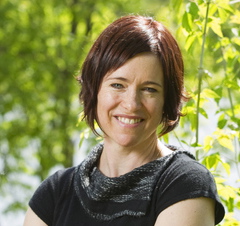 Marcia McKenzie is an Associate Professor in the Department of Educational Foundations and Director of the Sustainability Education Research Institute at the University of Saskatchewan, Canada (www.seri.usask.ca). She is Principal Investigator of the Sustainability and Education Policy Network (www.sepn.ca); co-author of Place in Research: Theory, Methodology, and Methods (2015); and co-editor of Fields of Green: Restorying Culture, Environment, and Education (2009). Her interdisciplinary research focuses on the intersections of environment and education, educational policy and practice, youth identity and place, and the politics of social science research.
Marcia McKenzie is an Associate Professor in the Department of Educational Foundations and Director of the Sustainability Education Research Institute at the University of Saskatchewan, Canada (www.seri.usask.ca). She is Principal Investigator of the Sustainability and Education Policy Network (www.sepn.ca); co-author of Place in Research: Theory, Methodology, and Methods (2015); and co-editor of Fields of Green: Restorying Culture, Environment, and Education (2009). Her interdisciplinary research focuses on the intersections of environment and education, educational policy and practice, youth identity and place, and the politics of social science research.
Mark Rickinson
 Mark Rickinson is an Associate Professor and Associate Dean (Engagement) in the Faculty of Education at Monash University. His research focuses on the role of evidence in educational policy and practice, and the role of learning in environmental and sustainability education. Publications include: ResourceSmart Schools Research Project Final Report (Sustainability Victoria, 2014); School Leader and Teacher Insights into Learning Outside the Classroom in Natural Environments (Natural England, 2012); and Environmental Learning: Insights From Research Into the Student Experience (Springer, 2010).
Mark Rickinson is an Associate Professor and Associate Dean (Engagement) in the Faculty of Education at Monash University. His research focuses on the role of evidence in educational policy and practice, and the role of learning in environmental and sustainability education. Publications include: ResourceSmart Schools Research Project Final Report (Sustainability Victoria, 2014); School Leader and Teacher Insights into Learning Outside the Classroom in Natural Environments (Natural England, 2012); and Environmental Learning: Insights From Research Into the Student Experience (Springer, 2010).
Katrien Van Poeck
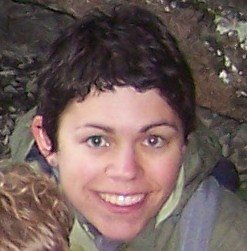 As a researcher at Ghent University (Centre for Sustainable Development) and the University of Leuven (Laboratory for Education and Society) Katrien Van Poeck (PhD) examines ESE practices and policymaking with a particular interest in the interrelatedness of educational and political processes and challenges and in questions of democracy, controversy, citizenship and public involvement in the light of sustainability issues. She combines her research with a job in ESE policymaking and capacity building at the Flemish government.
As a researcher at Ghent University (Centre for Sustainable Development) and the University of Leuven (Laboratory for Education and Society) Katrien Van Poeck (PhD) examines ESE practices and policymaking with a particular interest in the interrelatedness of educational and political processes and challenges and in questions of democracy, controversy, citizenship and public involvement in the light of sustainability issues. She combines her research with a job in ESE policymaking and capacity building at the Flemish government.
Part 2: Case Examples of Policy Contexts
Time: Wednesday 1 July, 13:30 - 15:00
Place: Hovrätten, Roome T302
Katrien Van Poeck & Jürgen Loones, Trans-disciplinary ESD policy research in Flanders (Belgium)
Arjen Wals, Roel van Raaij, & Machtelijn Brummel, Diamonds are forever: Policy support for sustainability-oriented hybrid learning in the Dutch Diamond
Marcia McKenzie, Sustainability and critical policy research in formal education across Canada
Alan Reid, Discussant
Katrien Van Poeck
 As a researcher at Ghent University (Centre for Sustainable Development) and the University of Leuven (Laboratory for Education and Society) Katrien Van Poeck (PhD) examines ESE practices and policymaking with a particular interest in the interrelatedness of educational and political processes and challenges and in questions of democracy, controversy, citizenship and public involvement in the light of sustainability issues. She combines her research with a job in ESE policymaking and capacity building at the Flemish government.
As a researcher at Ghent University (Centre for Sustainable Development) and the University of Leuven (Laboratory for Education and Society) Katrien Van Poeck (PhD) examines ESE practices and policymaking with a particular interest in the interrelatedness of educational and political processes and challenges and in questions of democracy, controversy, citizenship and public involvement in the light of sustainability issues. She combines her research with a job in ESE policymaking and capacity building at the Flemish government.
Jürgen Loones
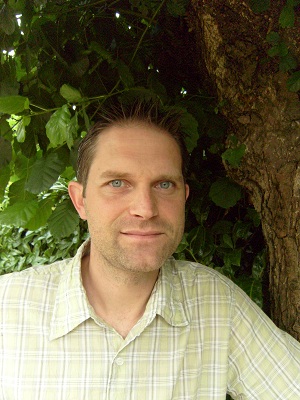 Jürgen Loones (MSc.) is a policy advisor at the Environmental Education Unit of the Flemish government. He coordinates and facilitates the implementation of the UN Decade of ESD in Flanders and has been involved in the development of an Implementation Plan for ESD which was the outcome of a participatory process on an ‘ESD consultation platform’.
Jürgen Loones (MSc.) is a policy advisor at the Environmental Education Unit of the Flemish government. He coordinates and facilitates the implementation of the UN Decade of ESD in Flanders and has been involved in the development of an Implementation Plan for ESD which was the outcome of a participatory process on an ‘ESD consultation platform’.
Arjen E.J. Wals
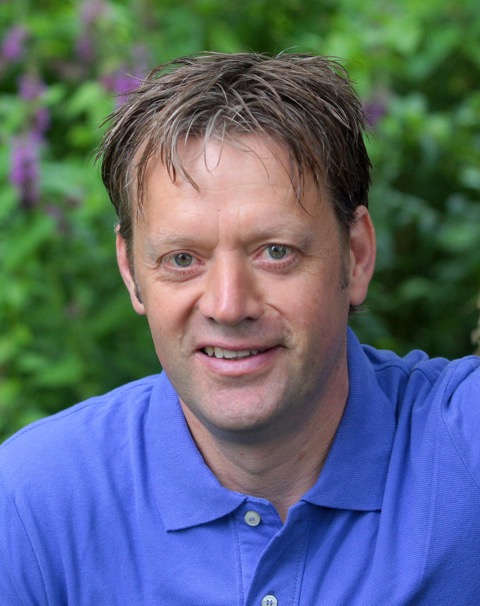 Arjen E.J. Wals is a professor and UNESCO chair in social learning and sustainable development at Wageningen University in The Netherlands and a Visiting Professor at Gothenburg University in Sweden. A central question in his work is how to create conditions that support new forms of learning that take full advantage of the diversity, creativity and resourcefulness that is all around us, but so far remains largely untapped in our search for a world that is more sustainable than the one currently in prospect. He maintains a blog at: www.transformativelearning.nl.
Arjen E.J. Wals is a professor and UNESCO chair in social learning and sustainable development at Wageningen University in The Netherlands and a Visiting Professor at Gothenburg University in Sweden. A central question in his work is how to create conditions that support new forms of learning that take full advantage of the diversity, creativity and resourcefulness that is all around us, but so far remains largely untapped in our search for a world that is more sustainable than the one currently in prospect. He maintains a blog at: www.transformativelearning.nl.
Machtelijn Brummel
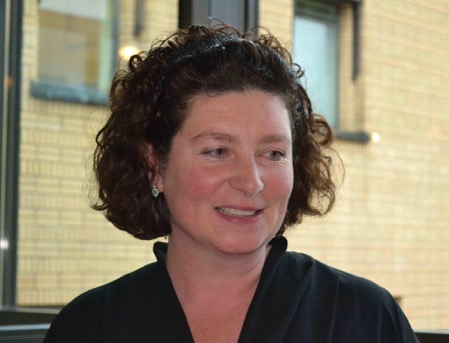 Machtelijn Brummel is a senior policy-advisor, in the Dutch program Learning for Sustainable Development – DuurzaamDoor. She is based at the Netherlands Enterprise Agency in Utrecht, where she helps to stimulate and implement social innovation, in regional, national and international networks. Education, Learning and Facilitating Vital Coalitions are important pillars in her work.
Machtelijn Brummel is a senior policy-advisor, in the Dutch program Learning for Sustainable Development – DuurzaamDoor. She is based at the Netherlands Enterprise Agency in Utrecht, where she helps to stimulate and implement social innovation, in regional, national and international networks. Education, Learning and Facilitating Vital Coalitions are important pillars in her work.
Marcia McKenzie
 Marcia McKenzie is an Associate Professor in the Department of Educational Foundations and Director of the Sustainability Education Research Institute at the University of Saskatchewan, Canada (www.seri.usask.ca). She is Principal Investigator of the Sustainability and Education Policy Network (www.sepn.ca); co-author of Place in Research: Theory, Methodology, and Methods (2015); and co-editor of Fields of Green: Restorying Culture, Environment, and Education (2009). Her interdisciplinary research focuses on the intersections of environment and education, educational policy and practice, youth identity and place, and the politics of social science research.
Marcia McKenzie is an Associate Professor in the Department of Educational Foundations and Director of the Sustainability Education Research Institute at the University of Saskatchewan, Canada (www.seri.usask.ca). She is Principal Investigator of the Sustainability and Education Policy Network (www.sepn.ca); co-author of Place in Research: Theory, Methodology, and Methods (2015); and co-editor of Fields of Green: Restorying Culture, Environment, and Education (2009). Her interdisciplinary research focuses on the intersections of environment and education, educational policy and practice, youth identity and place, and the politics of social science research.
Alan Reid
 Alan Reid’s research interests focus on teachers’ thinking and practice in environmental and sustainability education, and traditions, capacities and issues in environmental and sustainability education theory, research and practice. He works with the Education, Environment and Sustainability research group (Monash University), edits the international research journal, Environmental Education Research, while recent scholarly publications include A Companion to Research in Education (Springer, 2014, co-edited with Paul Hart and Michael Peters), and Major Works of Environmental Education (Routledge, 2015, co-edited with Justin Dillon).
Alan Reid’s research interests focus on teachers’ thinking and practice in environmental and sustainability education, and traditions, capacities and issues in environmental and sustainability education theory, research and practice. He works with the Education, Environment and Sustainability research group (Monash University), edits the international research journal, Environmental Education Research, while recent scholarly publications include A Companion to Research in Education (Springer, 2014, co-edited with Paul Hart and Michael Peters), and Major Works of Environmental Education (Routledge, 2015, co-edited with Justin Dillon).

